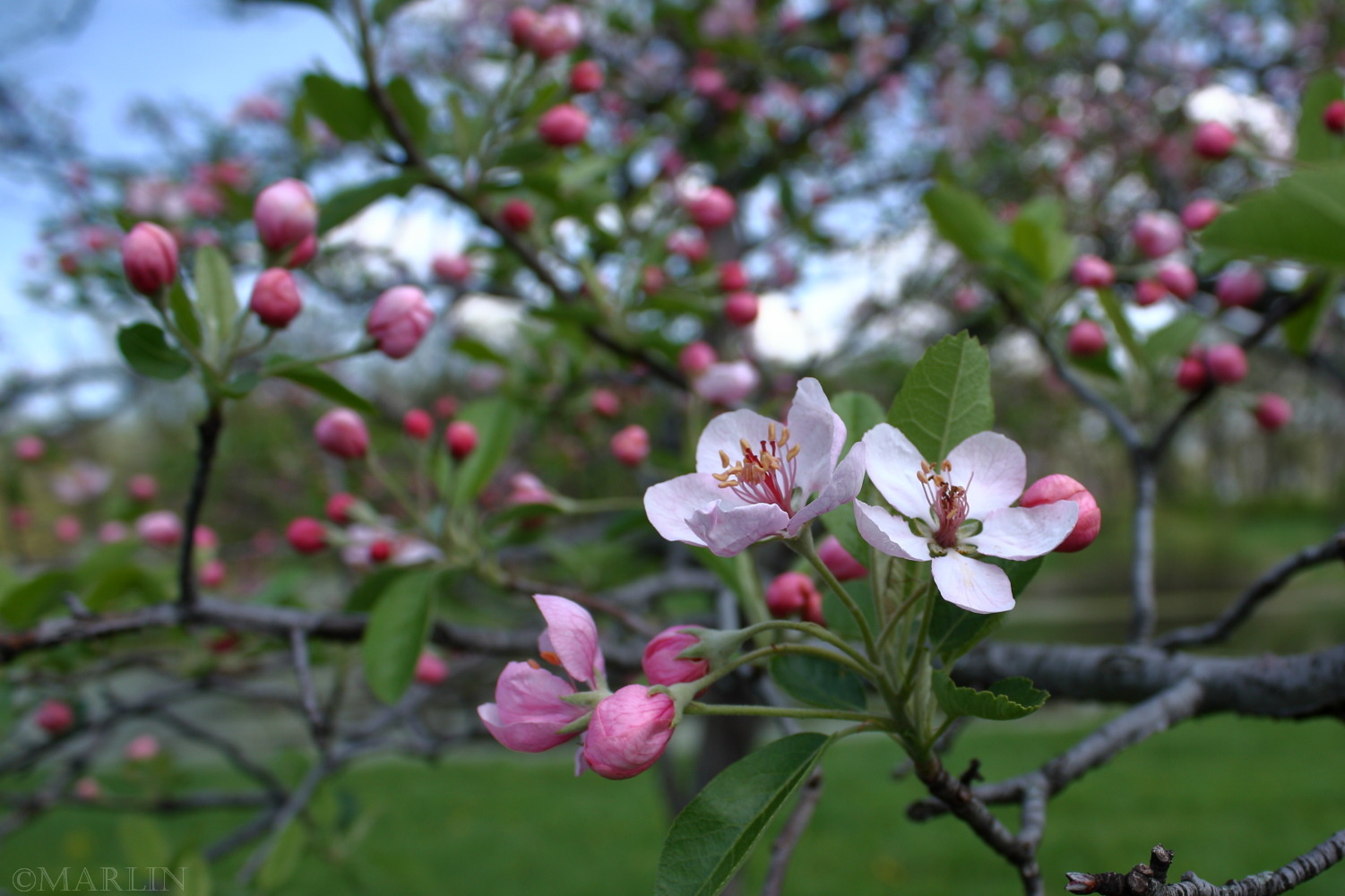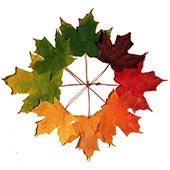Prairie Crabapple – Malus ioensis
Known for its showy and fragrant flowers, Prairie crab has been cultivated since 1885.
Prairie Crabapple is a deciduous tree with a rounded, spreading crown growing to 30 feet tall. Leaves alternate or clustered, simple; elliptic, oblong, or oblong-ovate, 4-13 cm (1.5-5 in) long and 2-10 cm (0.8-4 in) wide; glabrous above, glabrous to densely white tomentose beneath; dark green and lustrous above, rounded or cuneate at base; acute, obtuse or rounded at apex; margins singly or doubly crenate-serrate, some leaves with deep lobes; petioles slender, white tomentose, becoming less so with age.
Flowers in clusters, pedicels pubescent, 2.5-4 cm (1-1.5 in) long, with 2-5 flowers; calyx 5-lobed, lanceolate-acuminate, densely white tomentose; petals 5, white or pink, obovate, base narrowed into a claw; styles 5, with dense white hairs; stamens numerous; flowers appear from April to June.
Prairie Crabapple is 42 years old [2]. Ioensis refers to the state of Iowa
Fruits pomes, 2-4 cm (0.8-1.5 in) in diameter, globose, compressed at the ends, green-yellow, waxy or greasy to the touch; fruits mature September to October. [4]
Prairie Crabapple tolerates wet soil, rabbits, deer and pollution, but is not disease resistant. Grows best in full sun, and is most attractive when fed peat moss and compost. Distribution: Oklahoma, Texas and Arkansas, east to Alabama, north to Minnesota. Rare. Habitat: moist soils along streams and woodland borders.
References
- Morton Arboretum, Crabapple: A Tree For All Seasons
- Prairie Crabapple, Morton Arboretum acc. 277-67*2, photos: Bruce Marlin
- Morton Arboretum, Crabapples for the Home Landscape
- Oklahoma Biological Survey, Malus ioensis (Wood.) Britt.
Family Rosaceae – Rose Family; Fruit Trees
Trees Index | Pine Family | Beech, Oak | Nut Trees | Birch Family | Magnolias
Tree Encyclopedia / North American Insects & Spiders is dedicated to providing family-friendly educational
resources for our friends around the world through large images and macro photographs of flora and fauna.


